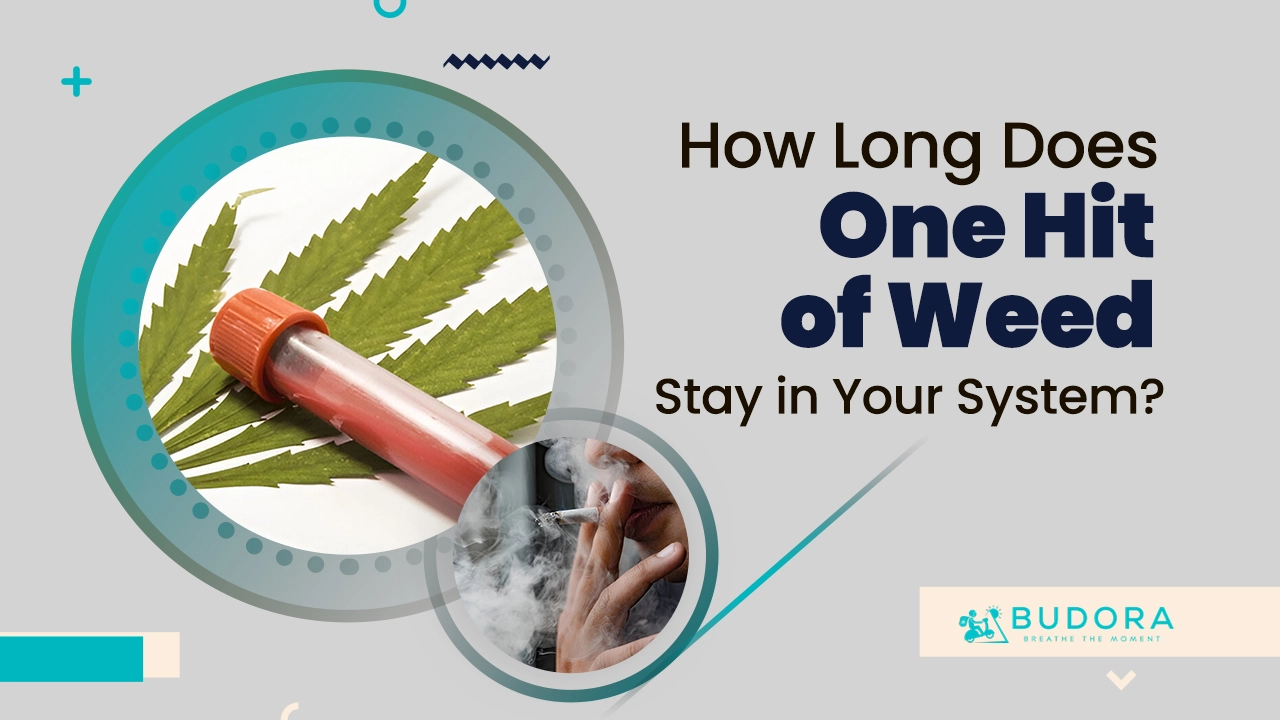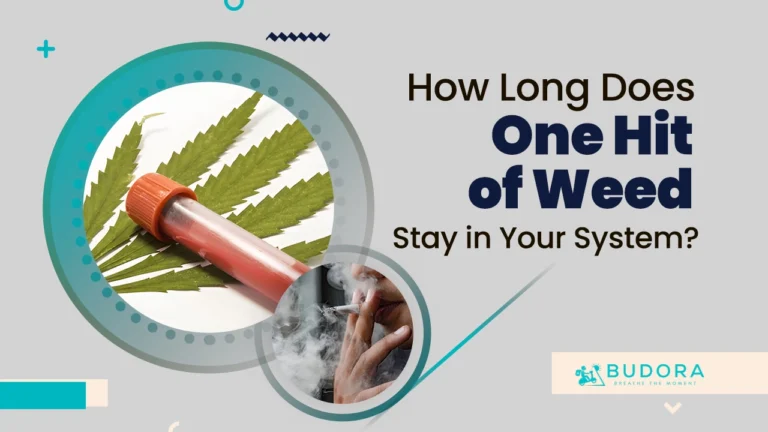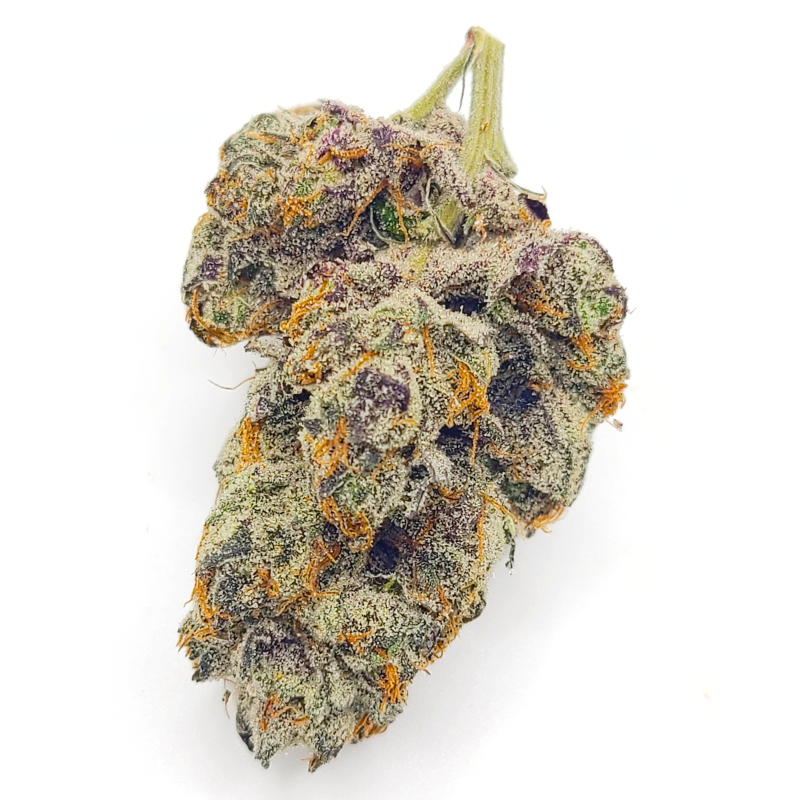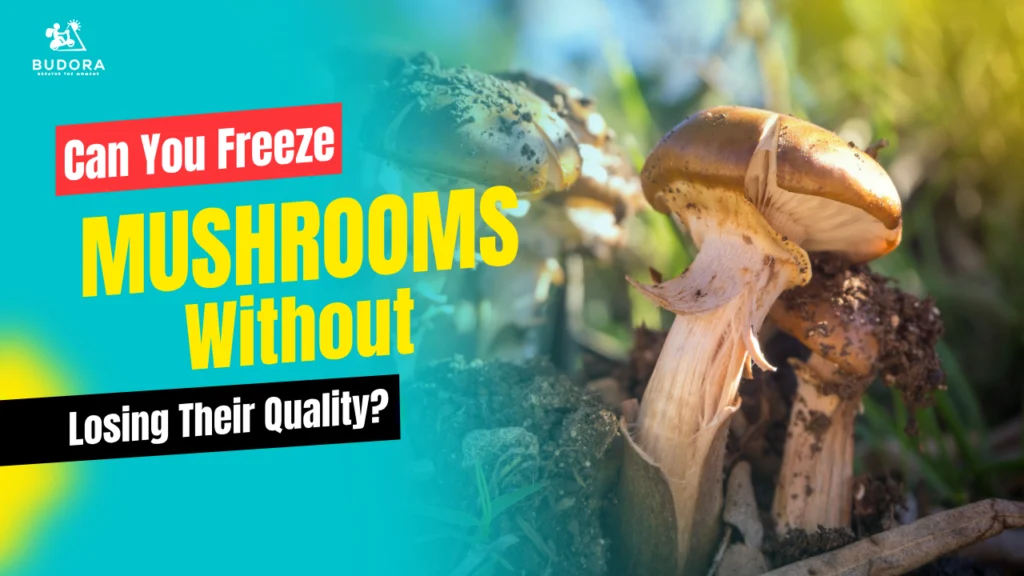Blog


Explore How Long Does One Hit of Weed Stay in Your System?
- Budora
- No Comments
You might assume that one hit of weed leaves your system quickly, but it’s not that simple. A variety of personal factors, like metabolism speed, body fat, hydration levels, and the potency of the strain, influence how long THC lingers in your body. Even a single puff could be detectable for days, depending on the type of drug test administered. Curious about your body’s response? Let’s break it down.
Key Points:
- A single hit of weed can be detected for days, sometimes longer, depending on body fat, metabolism, and test type.
- Urine, saliva, blood, and hair tests all have different THC detection windows, with hair tests reaching up to 90 days.
- THC may interact with prescription meds and build up in fat cells, making elimination slower and effects more prolonged.
How Long Does Weed Stay in Your System Overall?
The duration that one hit of weed stays in your system depends on various factors such as metabolism, frequency of use, and the type of drug test. For most casual users, THC from a single hit can be cleared from the bloodstream within 1 to 2 days. However, in some cases, traces of THC might remain for up to a week or more, particularly in urine tests for regular users. It’s important to consider the detection method, as THC metabolites are stored in fat cells and released slowly, which means they can linger longer in the body.
For medicinal users and professionals subject to workplace screenings, timing is critical. Choosing trusted sources like weed delivery Vancouver ensures you’re consuming reliable, high-quality cannabis with known THC levels, which can help better anticipate detection timelines.
What’s the Detection Window for Different Cannabis Drug Tests?
Different testing methods have different THC detection windows, even for light or one-time users:
Urine Test
Most common; can detect THC for up to 3 days in occasional users. Heavy users may test positive for 30+ days.
Blood Test
Typically detects THC for 1 to 2 days after a single hit. Chronic users might show traces for up to 10 days.
Saliva Test
Often positive for 24 to 72 hours, depending on use and oral hygiene. Common for roadside or workplace testing.
Hair Test
These detect long-term use — up to 90 days — but aren’t sensitive enough to reliably catch a single hit.
A single hit of weed is unlikely to show up in a drug test after 7 days, but individual factors can affect this timeframe.
Pro Tip: Even one puff may stay in your system longer if your metabolism is slow or if you have high body fat content.
How Your Body Processes THC
Once you inhale weed, THC quickly enters your bloodstream, reaching your brain within seconds. However, it doesn’t stay in your blood long. Instead, it gets stored in your fat cells and is released slowly, so it can be detected days (or weeks) later.
Factors that influence how your body processes THC:
- Metabolic rate
- Hydration levels
- Activity levels
- Fat content in the body
- Dietary habits
Is There Anything You Can Do to Metabolize THC Faster?
Yes — though there’s no guaranteed quick fix, some habits may support quicker elimination:
- Hydrate consistently – Water can help flush toxins over time.
- Exercise regularly – Especially cardio, which burns fat where THC is stored.
- Eat high-fiber foods – Fiber supports digestive detox.
- Try detox products – Some claim to help, but results vary by individual.
- Sleep and rest well – Recovery plays a role in how the body detoxifies.
Pro tip: Avoid high-fat meals before a test, as they may slow THC release.
Half-Life of THC and Metabolism
THC follows a half-life metabolism, meaning it takes 5-7 days for the body to eliminate it completely. However, this period can vary based on several factors:
Factors Affecting THC Clearance
Age
Older individuals tend to metabolize THC more slowly due to reduced kidney and liver function.
Body Fat Percentage
THC is stored in fat cells, so individuals with higher fat content retain it longer.
Metabolism
People with faster metabolisms break down THC more quickly.
Frequency of Use
Regular smokers accumulate THC in their system, increasing detection time.
Dosage
A higher THC dose means a longer elimination period.
Hydration & Exercise
Staying hydrated and engaging in physical activity can help speed up THC elimination.
If you are worried about weed withdrawal symptoms, factors such as metabolism, hydration, and exercise can play a role in how your body adjusts after stopping cannabis use.

How to Speed Up THC Metabolism?
If you’re concerned about passing a drug test, there are ways to potentially accelerate THC elimination:
- Hydration: Drinking plenty of water helps flush out toxins.
- Exercise: Engaging in cardio workouts and sweating can help break down fat-stored THC.
- Detox Drinks & Supplements: Some detox products claim to cleanse the body, though effectiveness varies.
- Healthy Diet: Eating fiber-rich foods may speed up THC excretion.
For those wondering, “How long does weed stay in your system one hit?”, these factors can influence whether THC remains detectable for a few days or longer.
Does Secondhand Smoke Affect Drug Tests?
Secondhand cannabis smoke typically doesn’t trigger a positive drug test in open or ventilated spaces. However, prolonged exposure in confined areas could leave detectable THC traces, especially with sensitive testing methods like urine or hair analysis. While absorption is lower compared to direct inhalation, those in strict testing environments should remain cautious.
THC and Prescription Medications: What You Should Know
THC can interfere with the metabolism of certain medications, such as antidepressants or antibiotics, by affecting liver enzyme activity. This may extend THC’s presence in your system or amplify side effects. Always consult your healthcare provider before mixing cannabis with prescription medications to ensure safety and avoid complications.
Conclusion
To sum up, how long one hit of weed stays in your system depends on multiple factors, from the type of drug test to your metabolism. If you’re asking, One hit of weed, how long does it stay?”, the answer varies: from 24 hours in blood to potentially 3 days in urine. Stay mindful of these variables, especially if you’re subject to testing.
FAQs
One Hit of Weed: How Long Does It Stay in Your System?
How Does Your Body Process THC?
Do Edibles Show up in Drug Tests?
How Long Do You Stay High After Ingesting Marijuana?
How Long Does It Take for Marijuana Concentrate to Leave Your System?
What Happens When You Sleep High?
Is It Good to Sleep with Your Head High?
Is Smoking One Vape Bad for You?
Like this article?
Budora
OTHER ARTICLES YOU MAY LIKE













